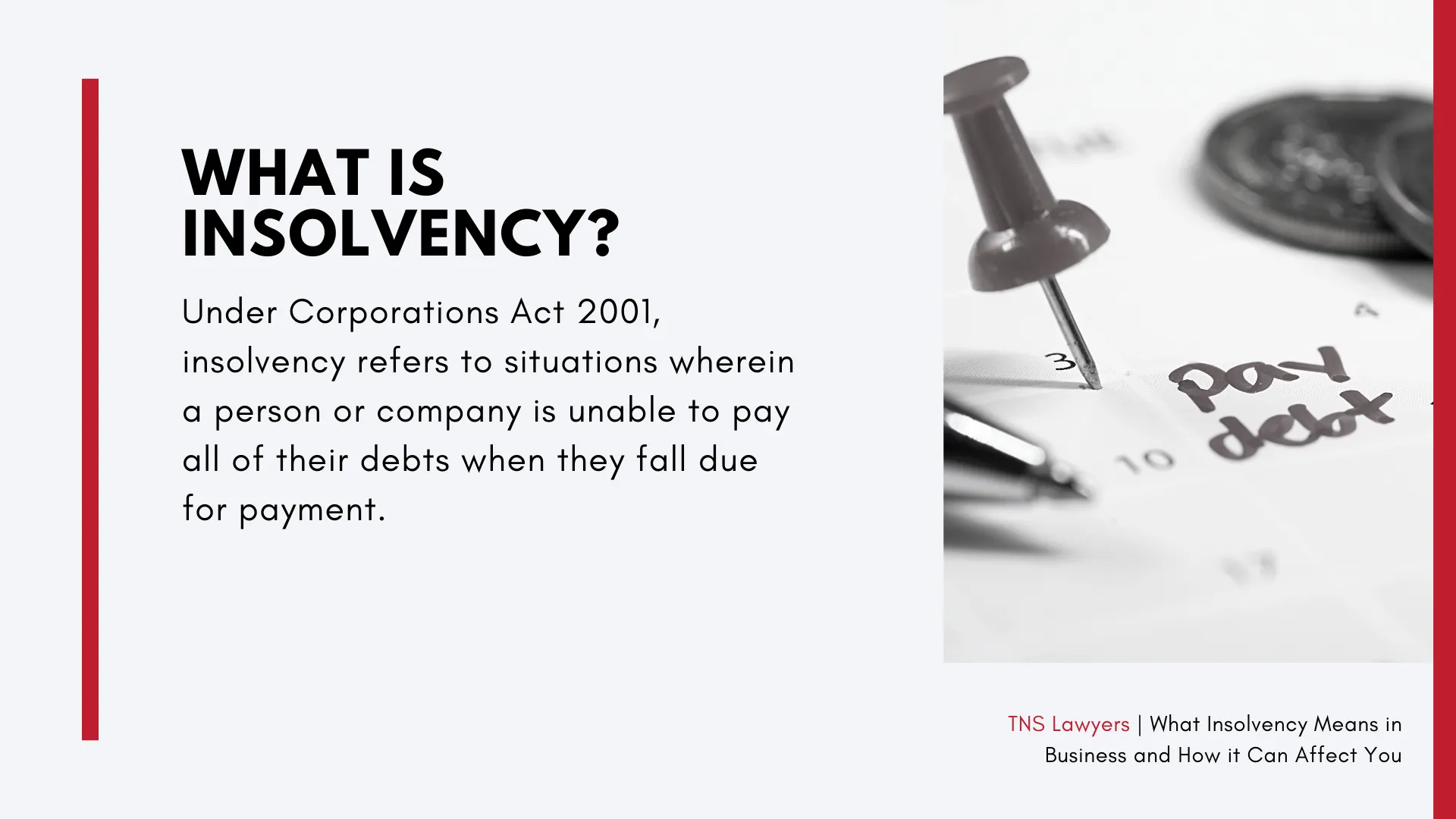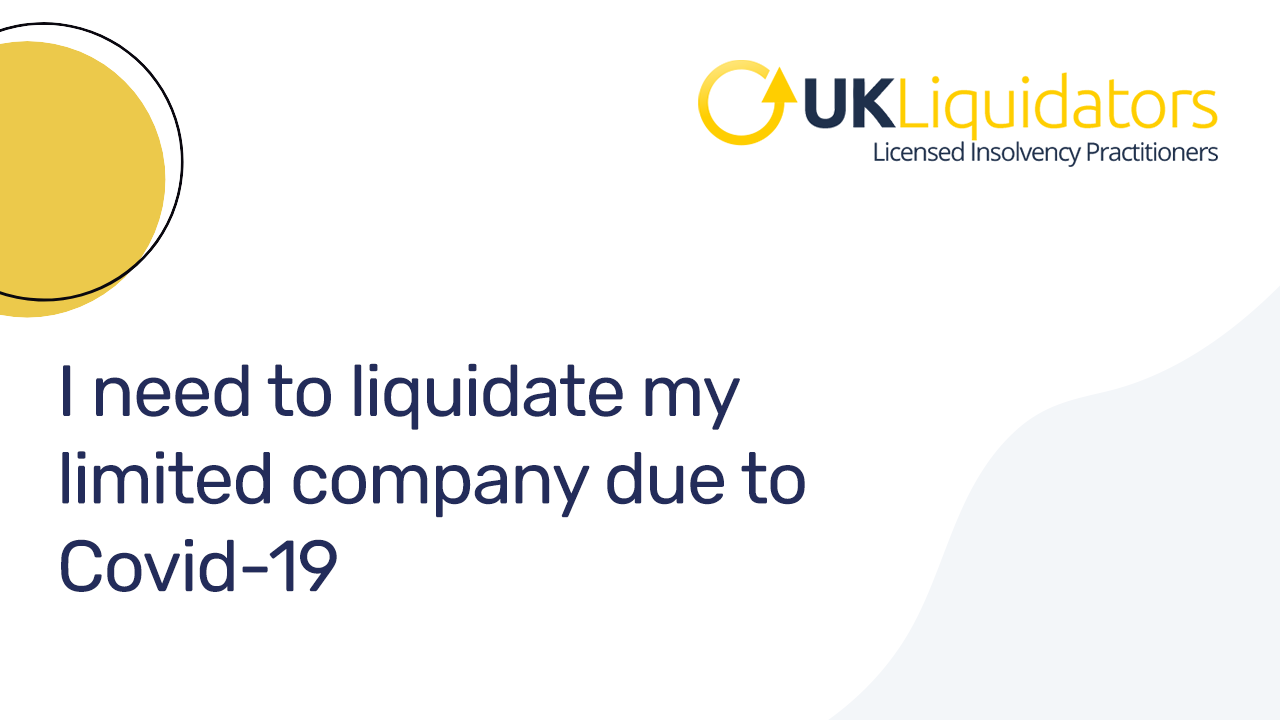The Main Principles Of Insolvency Practitioner
The Main Principles Of Insolvency Practitioner
Blog Article
Not known Factual Statements About Insolvency Practitioner
Table of ContentsThe Definitive Guide to Insolvency Practitioner4 Easy Facts About Insolvency Practitioner ShownThe Greatest Guide To Insolvency Practitioner4 Simple Techniques For Insolvency PractitionerInsolvency Practitioner Can Be Fun For AnyoneNot known Details About Insolvency Practitioner The Single Strategy To Use For Insolvency PractitionerHow Insolvency Practitioner can Save You Time, Stress, and Money.What Does Insolvency Practitioner Mean?
This can take place for a number of reasons, including bad economic management, unforeseen expenses, or a change in the marketplace. If a company is financially troubled, it might be compelled to fold or liquidate assets to pay creditors. This can have a significant impact on the business, staff members, and shareholders.It can lead to job losses, possession sales, and even personal bankruptcy. It is necessary to understand how corporate insolvency works and how it can affect your business. Why does a company participate in bankruptcy? There are a variety of reasons why a business may enter into bankruptcy - Insolvency Practitioner. One of the most usual factor is that the firm is incapable to pay its debts as they drop due.
Fascination About Insolvency Practitioner
Other factors for bankruptcy include scams, mismanagement, and unexpected expenses. Bankruptcy can also lead to task losses and the closure of businesses.
This can have severe implications for the business, its stakeholders, financial institutions and the economic climate. The firm may be compelled to sell properties, lay off team or perhaps shut down. This can have a ripple effect on the regional neighborhood and the economic situation all at once. Financial institutions may be omitted of pocket and the company's shareholders may see their financial investment go away.
Personal bankruptcy is the procedure where a company is wound up and its assets are marketed off to pay financial institutions. This is generally the last hope, as it can have a very adverse impact on the company's online reputation. Receivership happens when a company is not able to pay its debts and is positioned under the control of an outside manager.
Some Ideas on Insolvency Practitioner You Need To Know
Voluntary management is similar to receivership, but it is initiated by the directors of the firm instead of the financial institutions. This choice is typically made use of when a firm is dealing with financial troubles but there is still hope that it can be reversed. Corporate bankruptcy is a complex and significant issue that can have far-ranging ramifications for companies of all sizes.
With the ideal aid, you can make certain that your business has the finest opportunity of weathering this tough time. (Insolvency Practitioner)
The Ultimate Guide To Insolvency Practitioner
Whatever your reason for shutting your company, there are numerous considerations you have to address prior to 'shutting the doors'. There's also a great deal you can do to make the process much less difficult and obtain much better results. Closing down your organization is not practically fulfilling the useful and legal needs.
Deal with your staff members As an employer, you need to monitor and supply support to your staff members throughout this stressful time. Know any feasible wellness and health and wellbeing issues they could experience due to: job insecuritytransitioning via the sale of the businesschange in owners. You can: There Bonuses are generally 2 circumstances in which you would voluntarily shut your company.
You additionally: don't wish to, or can not, market the businesshave no-one to take it over. You're likely to have time to intend your closure. This will aid you to: close efficientlymeet your legal obligationssave moneytake away optimal profits. You may be closing your service because: it's not covering its overheads and running costsyou can't maintain the operating expense while attempting Full Article to sell it.
Insolvency Practitioner for Dummies
There are several points you require to resolve prior to shutting your service. Your accounting professional, lawyer or service advisor will certainly be able to aid you with this.

Depending on your legal structure, all or some of the adhering to points may use to you when you willingly close your service. Talk to your accounting professional, solicitor and service consultant about lawful needs for closing your company.
Insolvency Practitioner Things To Know Before You Buy
You have to settle all tax obligation problems for your company, even if it's no longer trading. This includes your responsibilities relating to settlement of: edge benefits taxpay-as-you-go (PAYG)superannuationemployment termination.
Insolvency takes place when your organization can not pay its financial obligations, which can result in your business shutting down. Different bankruptcy procedures use to people and companies.
If you attempt to take care of it yourself, you'll require to communicate with every financial institution separately to try to bargain normal repayment amounts. Insolvency or bankruptcy consultants can: support you with click for source the processhelp you understand your optionsnegotiate with your financial institutions in your place. They hold details licences and qualifications in this specialized field.
Unknown Facts About Insolvency Practitioner
It is essential to identify economic problem early so you can look at methods to stay clear of insolvency. You ought to additionally be conscious of creditors placing queries or defaults versus your credit report file. You need to constantly look for economic and lawful suggestions when you are having trouble handling your debts. It's difficult to pay for this guidance when you're in financial difficulty.
Individual insolvency for single traders and people within collaborations Personal bankruptcy procedures apply to: Prior to starting a personal bankruptcy process, it's crucial to understand the: effect of the consequenceshow long the influence will be., additionally known as a Component IX arrangement, allows you, or the assigned administrator, to bargain with your financial institutions to pay a percentage of the consolidated financial debts over a period of time to your administrator, instead than attempting to continue making repayments to each financial institution.
Our Insolvency Practitioner Ideas
Business insolvency and liquidation An 'bankrupt business' is unable to pay its financial obligations or cover the price of its expenses. In some situations, financially troubled companies may enter into liquidation. Liquidation is when an independent registered liquidator is selected to take control over the business and end up the firm organization in an orderly way.

The Best Guide To Insolvency Practitioner
Sonia Piccinini committed considerable time and initiative in the preparation of this magazine. The views expressed in the record are those of the IMF's Legal Division and need to not be credited to the Executive Directors or the Monitoring of the IMF. FRANOIS GIANVITI Current experience has demonstrated the level to which the lack of orderly and reliable insolvency treatments can aggravate financial and economic crises.
Report this page